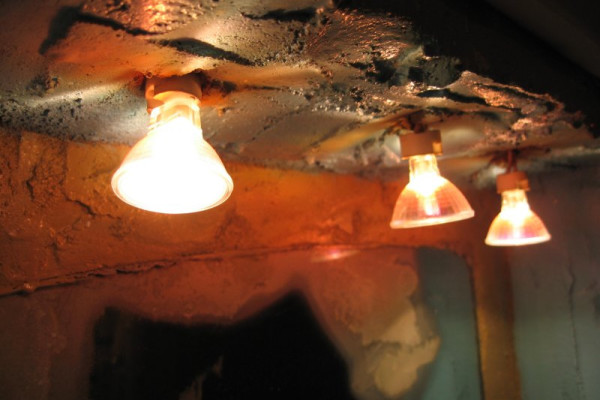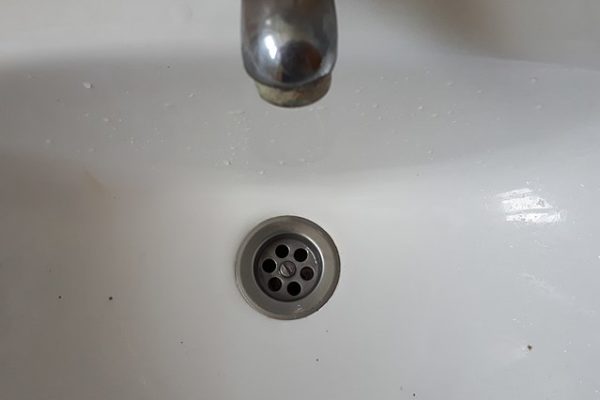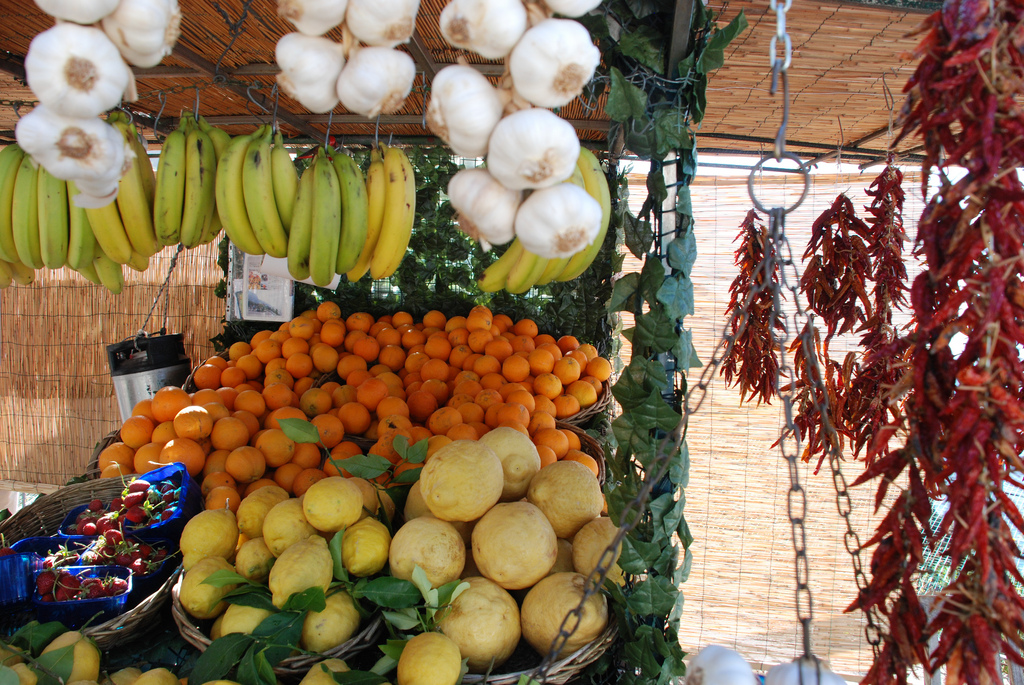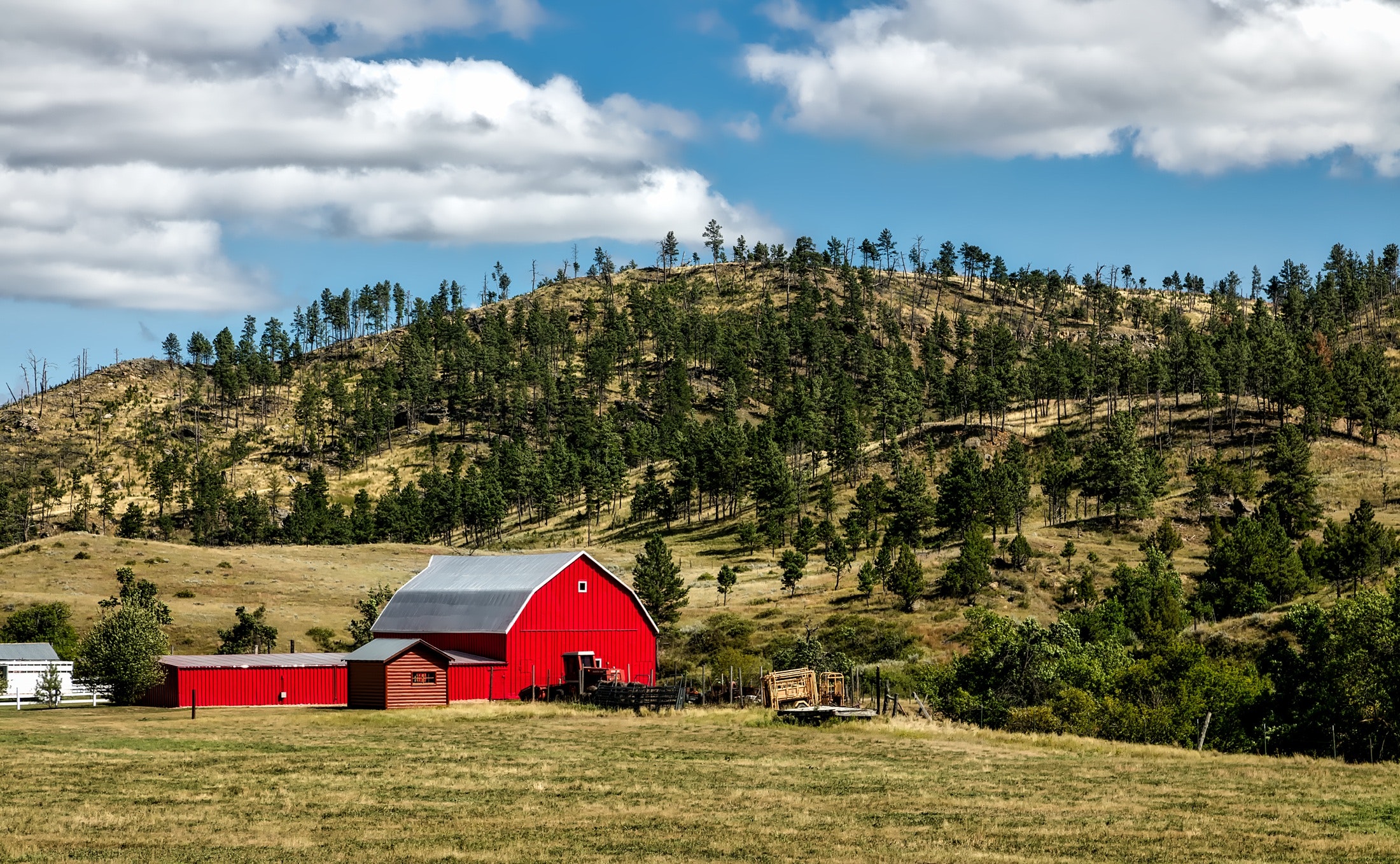My sister’s body is always going wrong.
As a child, her lungs filled with water, she could drown on dry land. Her heart had a hole in it, something that never ceased to amaze me. You could hear the absence if you put your head to her chest and listened closely: first the drum, then an odd, insinuating slurp after, as if her heart was trying to lick the world. In adolescence, she developed a tumor near her ovaries that her hormones mistook for a baby. It grew hair and the beginnings of a fingernail and one milky pupil, dilated in the saline of her innards. In the illustrious West Coast university she attended, she became sick with privilege. Her fingers bloated, she could not play the violin she had been contracted to perform with to attend, and she ended up switching her major to art history.
Our father, of course, is partly to blame. He twisted her left ankle right in an “accident”; he burned the inside of her arms with a cigarette in another parody of mistake. Everyone knows this version of bodies going wrong, you can guess what happened next. I would like to talk about the ways my sister is different; her beautiful and unique pathology.
Of all the times my sister’s body has failed her, her mind has stayed strong. My sister subsists on nostalgia, steroids, antibiotics and cocktails. This is not to suggest she is a sad and retiring person. She is the life of the party. Every story she tells begins with “Do you remember?” or “One time”. My sister has a champion memory. She can remember which supermarket I threw up in front of when I was four. Which dress I was wearing when we got into a fight over whether we should watch “Solid Gold” or “Dumbo’s Circus”. She remembers the name of the boy whose English book I stole in 10th grade, because I had a crush on him. And she remembers that I threw the book away in disgust, because in the front cover he had dutifully copied the lyrics of a pop song and signed his own name with a flourish, as if it were his poetry.
“It was a ‘Goo Goo Dolls’ song,” my sister shrieks with laughter. She has told this story many times, to strangers in bars, to our respective boyfriends, to me, even though I’ve heard it before and have already lived it.
Many of the things in my life I’ve never said out loud, or written down, because I have always assumed my sister would remember them. It was with a shock, when I was seventeen, that I realized we might have separate memories. When I say shock, I mean I felt a pain in my chest, the side where the heart is not located, and I lost my breath and tears came to my eyes. I said “no,” quite suddenly, not the actual sound, only the breath. I was on the subway, and the woman across from me gave am a disapproving look, and then looked away.
I started to think of all the things she maybe did not remember, that I did. When I was seven, and she was eleven, our father said to me, with contempt “You’re a seven year old going on thirty-five. You’re like a middle-aged woman,” I was so embarrassed, I never voiced my love for Bette Midler again. My sister was standing right beside me, I am sure. I always assumed she remembered this too, but what if she did not?
When I was five and she was nine, we got lost in an amusement park’s house of mirrors. It was during summer camp. We had expected, on the first day of camp, not to talk to anyone except each other: that was usually how these things went. The kids didn’t know yet if we were from town, like them, or shipped in from the city: whether to be afraid or friendly: in a group of white kids, in those days, in that city, no one would talk to the only black kid first, without clearance from their friends.
But our fate for the summer was sealed at the first lunch time, when it was announced that camp would no longer be serving ice cream in the afternoons, because the Harris girls were lactose intolerant: and if campers brought a peanut butter sandwich, they must go wash their hands thoroughly and brush their teeth under the supervision of a counselor, because my sister is violently allergic to nuts. By the afternoon, when a game of soccer had to be suspended because I had twisted my ankle and she had had an asthma attack, it was official. We were not to be spoken to for the rest of the summer. The counselors, in embarrassment, not sure how to fix the problem, acquiesced and let us do every activity together. We braided gimp into garish bracelets that only went around each other’s wrists. We made yarn god’s eyes that were never exchanged with anybody else, but came home to our house to stare sullenly from the kitchen windows.
This is not to suggest that we got along in those days. We didn’t. We were so close, I loved her so much, that I hated her. I hated being so dependent on her. I hated that even between each other we did not need to speak anymore, because we loved each other so much we thought we knew each other’s thoughts. She hated me because what nine year old wishes to admit that her closest friend is five, and her own sister at that? We were embarrassed by our love, by our intimacies, and it was understood between the two of us that we would shake them off as soon as school began and things were back to normal.
But the amusement park; the house of mirrors. It was the only attraction we could both go to: my sister suffers from vertigo, she dizzies easily and I was afraid of heights when I was small. The house of mirrors was not that large: it was cantilevered on a series of unsteady iron plates held three feet off the ground. I remember, you could see the cracked asphalt and bits of grass sometimes, between the plates, and they all groaned as we walked. Some of the mirrors reflected your true image, some distorted you and made you fat or tall, and some, I swear, were trick mirrors that reflected nothing back at all. When we first walked in, my sister went right and I went left, we knew we could spare each other a few minutes of company. I walked and walked and looked at myself: I had a pink t-shirt and purple shorts: my sister wore the same outfit. I had glasses, large as window frames that sat on the edge of my nose. My sister had the same pair, except her frames were a translucent blue and mine were pink. I had a black plastic purse with a long lead slung over my shoulder. My sister had a fanny pack.
In my purse was a roll of stickers. These were stickers with classical musicians on them, drawn in an art deco style: the torso of a man with a curly moustache, playing the violin; a woman in a flouncy red dress with her legs spread, and a cello stuck between them: a man with a flute: another man with no face, just a pale rectangle above the collar of a tuxedo, boxes for his hands poised to strike two drums in front of him. This quartet was printed over and over again on the roll. My mother had given them to me to amuse me, while my sister was in her music lessons. When I stuck them to sheets of scrap paper, and gave them to my sister, she said “There is no piece of music written for a flute, a violin, a cello and a drum. This is impossible.” My mother made her apologize because she made me cry.
Now, in front of the mirrors, I thought about putting a musician on each surface I passed, but I didn’t. I was too polite. I walked and walked, and looked at the grass between the iron plates at my feet. I watched the grass as it was first green, in the afternoon sunlight, then darken to fuzzy bits of brown as the light weakened. My sister had the watch, I did not, so I didn’t know how long I had been walking. I said, “Linda?” and waited, but heard nothing. I started to walk back to where I thought the entrance was, but of course, there were only mirrors. I said her name again, “Linda” and three more times, until I heard her say, “I’m here.” I saw five Lindas in front of me; in my same pink shirt and purple shorts. Her sneakers were different then mine: I was still using Velcro, she had proper laces. She was eating a piece of fruit leather from her fanny pack. She had a visor and I did not. I had cornrows still: each with a sharp barrette at the end that battered the sides of my face if I made any sudden movement. She had graduated to less dangerous braids. She tossed these now, over her shoulder, and waved. “That’s doesn’t help,” I said. “I don’t know which one you are.” She said “Just pick one and start walking, I’ll help you.” So I did. The first three were not her, just glass, not my sister. The fourth try I got right. I touched her hand, which was sticky from her snack. “How do we leave?” I asked. She said she didn’t know.
—
Kaitlyn Greenidge is a writer living in Brooklyn. She graduated from Hunter College’s Fiction MFA program in 2010. Her first novel, We Love You Charlie Freeman, is forthcoming from Algonquin Press.




